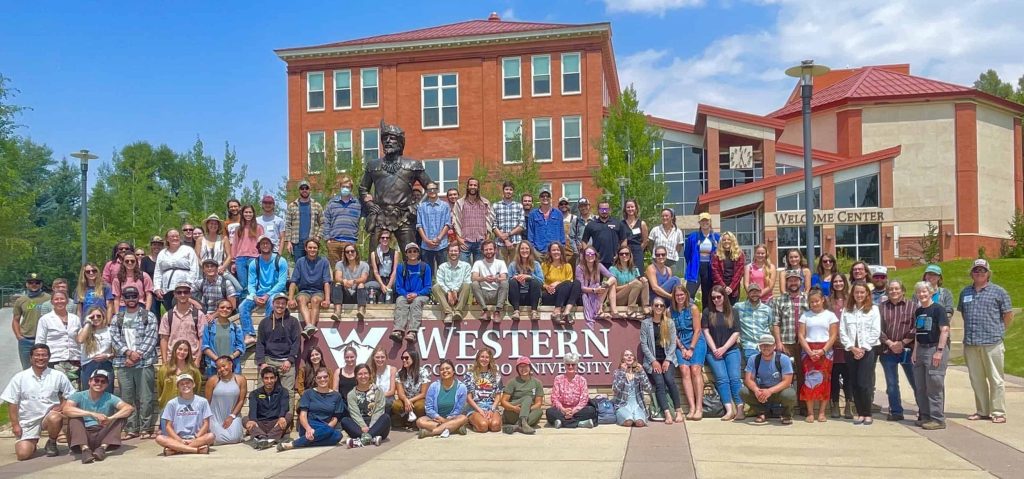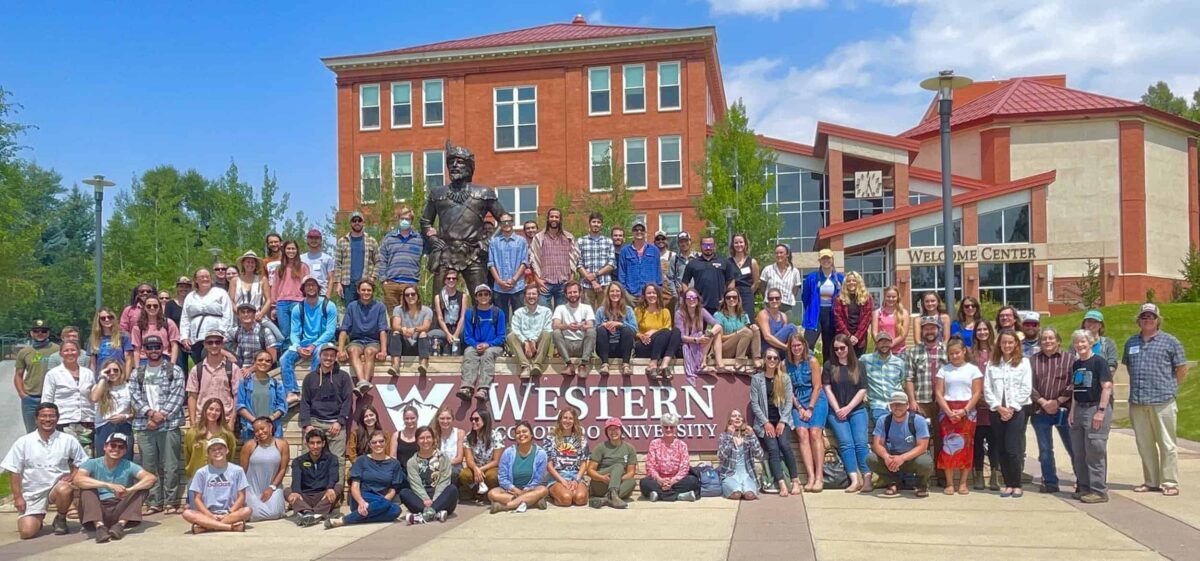
In the opening weeks of Western’s Master’s of Environmental Management (MEM) program, founder and former dean Dr. John Hausdoerffer shared his vision for the MEM program with a group of budding graduate students, explaining to them that he views the MEM as a two-year experiment in living your values — principles to be honed via practical trial and error over the program’s two-year course of study.
But reflecting back upon my own MEM experience, it’s difficult not to wonder about the values on display when most MEM faculty and staff are obviously stretched so perilously thin.
ENVS professors like Dr. Hausdoerffer and Dr. Melanie Armstrong (since departed for the University of Wyoming), the latter of whom acted as MEM’s interim dean for the 2021-2022 academic year while Hausdoerffer was on sabbatical, pulled incredibly long hours — answering an endless barrage of student emails, juggling multiple grants, and otherwise running the program while also teaching courses and overseeing partnerships with the Coldharbour Institute, Center for Public Lands, Telluride Institute, and others.
In one standout instance, I recall being driven by a professor on a field course they were leading (that professor had also written and managed the grant to pay for the whole expedition) when they abruptly diverted the van full of students to a rural library so that they could submit a proposal for another grant just under the deadline.
In another, more pedestrian example, it’s not at all uncommon for students to receive email responses from faculty at 11 p.m., or 5 a.m.
That devotion to the program — and, it would also seem, to the more complicated notions of productivity and work — certainly did not go unnoticed by MEM students, who discussed their professor’s apparently insane workloads openly.
While the MEM workload in the classroom is not overbearing — the nighttime courses are designed to complement at least a part-time, if not full-time job — it’s the culture of perpetual involvement, particularly for on-campus students, that too often ends up straining student’s mental health.
And, to be clear, this is not an MEM-specific issue.
Academia at-large is rife with examples of workaholism, excessive stress (even to the point of mental breakdown), exploitation of graduate students by professors, and tenuous conditions for adjunct faculty. This unsustainable model has led to growing protests, strikes, and calls for better pay and fairer conditions, including recently within the University of California system.
But returning to the MEM program, it’s quite common for students to balance three to six commitments outside of coursework, including program-related fellowships with nonprofit organizations like Coldharbour, Solar Energy International, and the Earthship Institute, on- and off-campus part-time jobs (including with Top o’ the World), campus clubs and committees, and additional internship opportunities.
With the benefit of hindsight, it’s easy to see that I was personally overstretched during my MEM tenure.
It can require significant personal willpower and vigilance not to be when there is a ceaseless supply of interesting opportunities constantly crossing your radar — a clear strength of the program.
But it’s worth asking whether participating in the rat race is worth the costs it poses, particularly as many students in the program simultaneously wrestle with the stresses and anxieties inherent to a world threatened by climate crisis, attacks on our democracy, and now multiple gruesome, large-scale conflicts that consistently beg for our limited attention.
In an increasingly online world where information is abundant but often taken for granted, twisted, or outright ignored, there can be real value in slowing down, minimizing distractions, and counteracting our desire to always become more involved and bombard ourselves with additional tasks and information.
In order to engage with the complex, “wicked” environmental issues of our time, it’s often necessary to engage in deep, cross-disciplinary research and thinking, the type of work that entails blocking off multiple hours on the calendar and silencing those pesky phone notifications.
Of course, students must contend with the financial realities of attending university, even one which offers solid financial value like Western.
Many students stretch themselves thin in the process of completing fellowships that reduce their tuition burden or finance their living expenses; that’s the sad reality of American education.
But then there are those (including myself, at times) that can fall into the trap of placing far too much emphasis on feeling busy — attending various committee and club meetings, taking on multiple jobs, or even adding unpaid internships to the mix.
And that’s where there is room to cut back, scratching off a resume line or two in exchange for greater sanity, much-needed rest, and intentionality of purpose.
So it’s worth asking some questions:
- Might focusing intently on one or two elective commitments outside of coursework allow MEM students to better focus their energies on the things that matter most to them?
- Would it make a difference if leaders in the program made an intentional effort to better manage their own workloads — and communicated openly about the benefits of doing so?
- If positive changes were made to programmatic culture, beginning at the top, would students walk away with better mental health and a healthier outlook on life?
- Would we all be more effective as environmental managers and advocates if we worked more deliberately?
My personal advice for incoming and newly minted MEM students? Take care of your financial needs over the summer of your first year, locking in the scholarships, fellowships, and jobs needed to sustain yourself.
Then, as you get settled in over the fall, carefully consider how much free time you have outside of coursework and other commitments, and deliberately explore the offerings of clubs, internships, committee seats, and additional opportunities that you’re bombarded with.
As your first full semester draws to a close, select a small handful that you’re most passionate about, reserving ample time for outdoor recreation and other forms of recharging, MEM readings and coursework, and your pre-existing responsibilities.
Every week in graduate school is important, with two years flying by in the blink of an eye.
It’s important to safeguard your time and energy — and your mental health. So don’t settle for just feeling busy, MEMers — explore your options, find your niche, and dig in.

